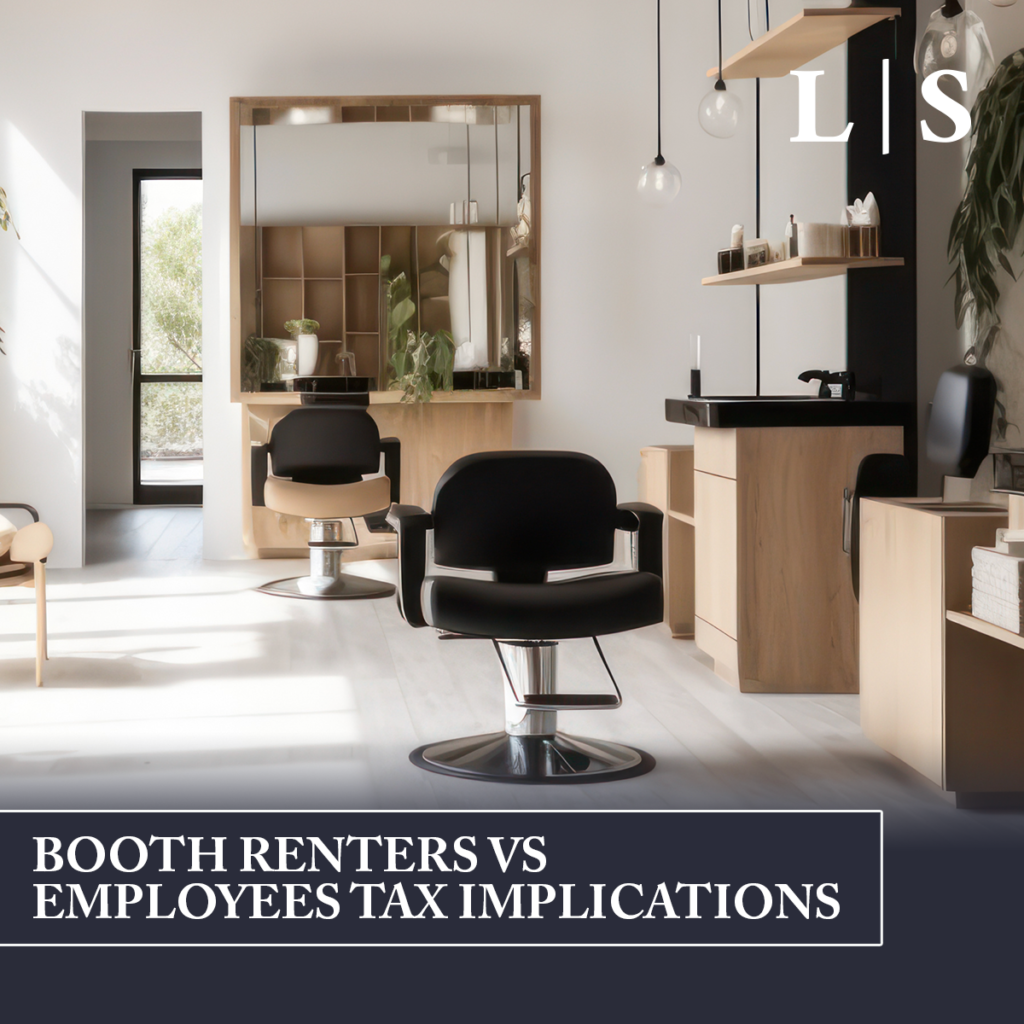Booth Renters vs. Employees: Tax Implications in the Salon Industry
Posted on June 15, 2024 by Kevin

Navigating the tax landscape is crucial for salon professionals, whether you’re a booth renter or an employee. Understanding the distinctions in tax responsibilities between these two roles can help you manage your finances more effectively and avoid potential pitfalls. Here’s a breakdown of the key differences in tax implications for booth renters and salon employees.
Employment Status and Tax Withholding
Salon employees are classified as W-2 employees. This means that the salon owner is responsible for withholding federal and state income taxes, Social Security, and Medicare taxes from their paychecks. Employees receive a W-2 form at the end of the year, summarizing their earnings and the taxes withheld.
Booth renters, on the other hand, are considered self-employed independent contractors. They do not receive a regular paycheck with tax withholdings. Instead, they are responsible for calculating and paying their own taxes, including income tax, self-employment tax (which covers Social Security and Medicare), and any applicable state and local taxes. Booth renters receive a 1099-NEC form if they earn more than $600 from a single client or entity.
Self-Employment Tax
As employees, salon workers’ pay 7.65% of their wages for Social Security and Medicare taxes. The employer matches this amount, contributing another 7.65%.
Booth renters must pay the entire 15.3% self-employment tax themselves. This covers both the employee and employer portions of Social Security and Medicare taxes. This can be a significant financial consideration for those deciding between employment and renting a booth.
Business Expenses and Deductions
Employees can deduct certain unreimbursed work-related expenses only if they itemize their deductions and if these expenses exceed 2% of their adjusted gross income. However, due to recent tax law changes under the Tax Cuts and Jobs Act, these deductions are currently suspended for tax years 2018 through 2025.
Booth renters can deduct a wide range of business expenses directly related to their salon activities. These deductions can include rent for the booth, supplies, equipment, insurance, and marketing costs. They can also deduct a portion of their home expenses if they maintain a dedicated home office. These deductions can significantly reduce their taxable income.
Quarterly Estimated Taxes
Employees generally do not need to worry about making estimated tax payments, as their employer withholds taxes throughout the year.
Booth renters must make quarterly estimated tax payments to the IRS if they expect to owe $1,000 or more in taxes for the year. This requires careful financial planning and budgeting to ensure that they set aside enough money throughout the year to cover their tax liabilities.
Record Keeping and Compliance
Employees have relatively simple tax records, primarily consisting of their W-2 forms and possibly a few other documents if they have other sources of income or deductions.
Booth renters need to maintain detailed records of all their income and expenses. This includes keeping receipts, invoices, bank statements, and any other documentation that supports their business activities. Accurate record-keeping is essential for maximizing deductions and ensuring compliance with tax laws.
Conclusion
Choosing between being a booth renter or an employee in the salon industry has significant tax implications. Employees enjoy the simplicity of having taxes withheld and fewer responsibilities in terms of tax filings and compliance. Booth renters, while shouldering a heavier tax burden and more administrative tasks, benefit from greater control over their business and the potential for substantial tax deductions. Understanding these differences can help salon professionals make informed decisions and manage their finances effectively.
Whether you’re considering renting a booth or taking on an employee role, it’s wise to consult with a tax professional who can provide personalized advice based on your unique situation. With the right guidance, you can navigate the tax landscape confidently and keep more of your hard-earned money.
Categories: Tax Tips


Leave a Reply